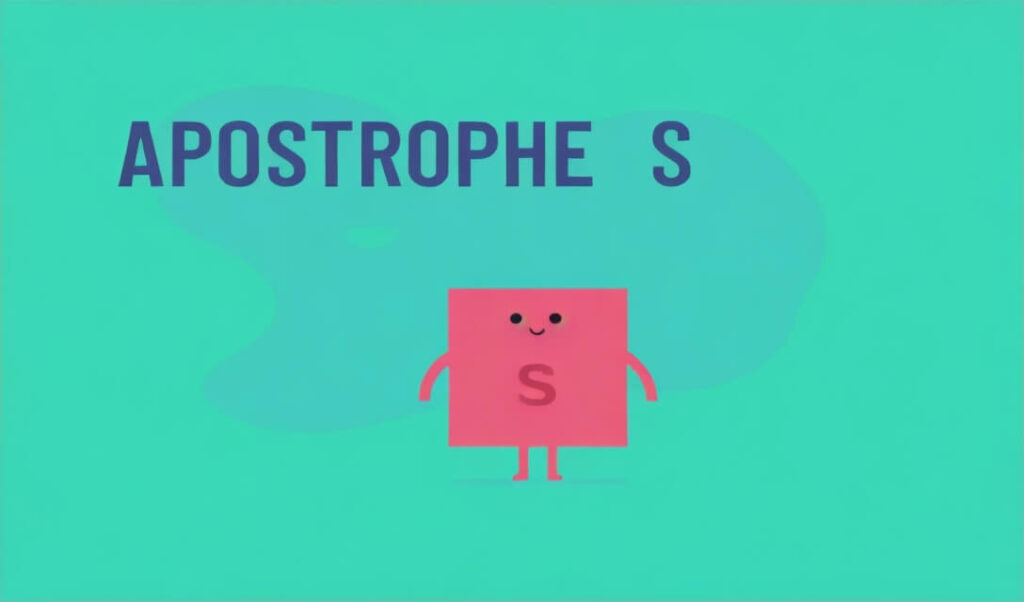Welcome to a captivating journey into the essence of the Spanish language, where the letter S reigns supreme. Prepare to be enchanted by the power and allure of this humble letter as we explore its significance in Spanish words and names. Learning Spanish opens a gateway to a rich cultural tapestry, and expanding your vocabulary will elevate your language skills to new heights. Join us as we delve into the world of the letter S and unravel its secrets, empowering you to communicate with confidence and fluency.
In the vast landscape of language learning, Spanish stands tall as one of the most widely spoken languages across the globe. The importance of learning Spanish cannot be overstated, as it opens doors to vibrant communities and offers a profound understanding of diverse cultures. By immersing yourself in the beauty of the Spanish language, you embark on a transformative journey of personal growth and global connection.
Within the Spanish lexicon, the letter S assumes a multifaceted role, bestowing words with distinctive sounds, meanings, and expressions. Its presence resonates in everyday conversations, poetry, literature, and music, leaving an indelible mark on the language’s cadence and character. By delving into the intricacies of the letter S, we unravel a tapestry of linguistic richness that unveils itself in countless Spanish words and names.
Throughout this captivating exploration, we will dive into Spanish words enriched by the letter S, discover the charm of names and last names that begin with S, and decipher the nuances of the apostrophe S. Together, we will unlock the secrets of pronunciation, embrace the cultural significance of Spanish names, and navigate the intricacies of possessive constructions.
Embark on this linguistic adventure with an open mind and a thirst for knowledge. Allow the letter S to guide you through the realm of Spanish language and culture, expanding your vocabulary and enhancing your language skills along the way. Are you ready to unlock the power of the letter S and discover the beauty it holds within the Spanish language? Let’s embark on this exhilarating journey together.
The Significance of the Letter S in Spanish

The letter S holds a pivotal role in the Spanish alphabet, weaving its way through the fabric of the language with grace and versatility. Understanding its importance is key to unlocking the true essence of Spanish and expanding your linguistic prowess. Let’s dive into the captivating world of the letter S and explore its significance.
In Spanish, the pronunciation of the letter S differs from its English counterpart, adding a touch of melodic charm to the language. The Spanish S is soft, often described as a gentle whisper or a subtle hiss, lending an enchanting quality to spoken words. Embracing this unique pronunciation is essential for achieving authenticity and fluency in Spanish conversation.
Beyond its auditory allure, the letter S showcases its adaptability in forming an array of word structures and sounds. It effortlessly joins forces with other letters to create a symphony of phonetic possibilities. From forming the vibrant “sí” (yes) to lending a rhythmic flair to words like “rosa” (rose) and “sol” (sun), the letter S dances across the Spanish vocabulary, imparting meaning and color to every utterance.
As you delve deeper into the Spanish language, you’ll encounter an abundance of captivating words that feature the letter S. From “sabroso” (tasty) to “sueño” (dream), these words with the letter S capture the essence of Spanish culture, gastronomy, and emotions. They become the building blocks of expression, allowing you to articulate your thoughts with precision and flair.
Embrace the adventure of learning how to write the letter S in Spanish, as each stroke of the pen or tap of the keyboard connects you to a rich heritage of literature, art, and communication. Mastering the art of crafting the elegant curves and lines that form the letter S empowers you to leave your mark on the Spanish language canvas.
So, how do you say the letter S in Spanish? It’s simple yet nuanced, a delicate balance between the soft “es” sound and the crisp enunciation of its presence. Practice, listen, and immerse yourself in the melodic symphony of Spanish, allowing the letter S to guide your pronunciation journey.
As we explore the depths of the Spanish language, let us marvel at the alphabet lore surrounding the letter S. From its historical roots in the Greek alphabet as “sigma” to its integration into Spanish, the journey of the letter S is one of cultural exchange and linguistic evolution. It has witnessed the rise and fall of empires, the birth of literary masterpieces, and the fusion of diverse traditions.
The significance of the letter S in Spanish extends far beyond its alphabetical position. It embodies the spirit of expression, the gateway to vibrant conversations, and the key to unlocking a world of possibilities. Embrace its power, immerse yourself in its sounds, and let the letter S be your guide as you embark on an exhilarating journey of expanding your vocabulary and enhancing your language skills.
Spanish Words with S

When it comes to expanding your Spanish vocabulary, exploring words that feature the letter S opens up a world of linguistic richness and cultural expression. Let’s dive into a captivating collection of Spanish words that embrace the letter S and showcase its versatility.
These are just a few examples of the vibrant tapestry of Spanish words that feature the letter S. By immersing yourself in these words and their meanings, you’ll not only expand your vocabulary but also deepen your understanding of Spanish culture and the people who speak this beautiful language.
- Fiesta – [fee-es-ta] – Party or celebration. Experience the vibrant fiestas of Spain, filled with music, dancing, and joyful revelry.
- Casa – [ka-sa] – House or home. Discover the charm of Spanish architecture and the warmth of Spanish households.
- Amistad – [ah-mees-tad] – Friendship. Explore the bonds of camaraderie and the importance of relationships in Spanish culture.
- Música – [moo-see-ka] – Music. Immerse yourself in the diverse rhythms and melodies of Spanish music.
- Pasión – [pah-see-on] – Passion. Feel the intensity and fervor that infuse Spanish art, music, and culture.
- Beso – [be-so] – Kiss. Experience the romantic allure and affectionate expressions of love in Spanish culture.
- Costa – [kos-ta] – Coast. Delight in the sun-kissed coastlines and sandy shores of Spanish beaches.
- Vamos – [va-mos] – Let’s go. Embrace the spirit of adventure and seize the opportunities that await in Spanish-speaking destinations.
- Risas – [ree-sas] – Laughter. Celebrate the joy and laughter that are integral parts of Spanish culture and daily life.
- Desayuno – [de-sa-yu-no] – Breakfast. Indulge in the delicious flavors of a traditional Spanish breakfast, featuring fresh bread, jamón, and café con leche.
Whether you’re exploring Spanish words with S for academic purposes, travel, or simply the joy of learning, their relevance and common usage will undoubtedly enrich your language skills. Embrace the rhythm and melody of these words as they roll off your tongue, and let their vibrant energy infuse your conversations.
Remember, language learning is a journey of exploration and connection. Embrace the power of Spanish words with S and unlock the doors to cultural understanding, personal growth, and meaningful interactions.
¡Vamos! Let’s embark on this linguistic adventure together and embrace the beauty of Spanish words with S.
Words That Start with S in Spanish

When it comes to expanding your Spanish vocabulary, exploring words that feature the letter S opens up a world of linguistic richness and cultural expression. Let’s dive into a captivating collection of Spanish words that embrace the letter S and showcase its versatility.
- Sabor – [sa-bor] – Flavor. Discover the delightful world of Spanish cuisine with “sabor”. From savory dishes to delicious desserts, explore the diverse and tantalizing flavors that embody the rich culinary heritage of Spanish-speaking countries.
- Sol – [sol] – Sun. Immerse yourself in the warmth and brightness of the Spanish sun. “Sol” represents energy, vitality, and the beauty of nature, creating a sense of optimism and joy.
- Sueño – [swe-ño] – Dream. Embrace the power of dreams and aspirations with “sueño”. This word captures the magic and imagination that fuel our desires for success, adventure, and happiness.
- Salud – [sa-lud] – Health. Raise your glass and toast to good health with “salud”. It represents well-being and serves as a heartfelt wish for the health and happiness of others.
- Sonrisa – [son-ri-sa] – Smile. Experience the universal language of joy and connection with “sonrisa”. This word embodies the beauty and warmth of a smile, fostering positive interactions and brightening our daily lives.
- Silencio – [si-len-cio] – Silence. Appreciate the tranquility and serenity of silence with “silencio”. This word invites us to embrace moments of stillness, introspection, and peacefulness.
- Sorpresa – [sor-pre-sa] – Surprise. Embrace the excitement and delight of surprises with “sorpresa”. This word captures the element of unexpected joy, creating memorable and joyful experiences.
- Sencillo – [sen-ci-llo] – Simple. Discover the beauty in simplicity with “sencillo”. This word represents elegance and straightforwardness, encouraging us to appreciate the uncomplicated aspects of life.
- Sentimiento – [sen-ti-mien-to] – Feeling. Dive into the realm of emotions and sentiments with “sentimiento”. This word expresses the depth and range of human feelings, from love and happiness to sadness and longing.
- Soledad – [so-le-dad] – Solitude. Reflect on the tranquility and self-discovery found in solitude with “soledad”. This word represents introspection and the opportunity for personal growth.
These are just a few examples of the vibrant tapestry of Spanish words that start with the letter S. By immersing yourself in these words and their meanings, you’ll not only expand your vocabulary but also deepen your understanding of Spanish culture and the people who speak this beautiful language.
Whether you’re exploring Spanish words that start with S for academic purposes, travel, or simply the joy of learning, their relevance and common usage will undoubtedly enrich your language skills. Embrace the rhythm and melody of these words as they roll off your tongue, and let their vibrant energy infuse your conversations.
Remember, language learning is a journey of exploration and connection. Embrace the power of Spanish words that start with S and unlock the doors to cultural understanding, personal growth, and meaningful interactions.
¡Vamos! Let’s embark on this linguistic adventure together and embrace the beauty of Spanish words that start with S.
Spanish Names and Last Names Starting with S

In Spanish culture, names and last names hold great significance, reflecting heritage, family ties, and personal identity. Let’s explore a selection of popular Spanish names and surnames that begin with the letter S, delving into their meanings and origins.
Spanish Names that Start with S:
- Santiago – Derived from the Spanish word for “Saint James,” Santiago carries a strong religious connotation. This beloved name in Spanish-speaking countries signifies devotion, faith, and the journey of life.
- Sofia – of Greek origin, Sofia means “wisdom.” Its timeless and elegant charm has gained popularity worldwide, including in Spanish-speaking cultures, where it symbolizes intelligence, knowledge, and grace.
- Samuel – Derived from the Hebrew name Shmuel, Samuel means “heard by God.” This name is associated with strength, wisdom, and divine communication, reflecting a sense of purpose and connection to a higher power.
- Sara – A variant of the name Sarah, Sara means “princess” in Hebrew. Radiating grace and femininity, it has been a popular choice for girls in Spanish-speaking countries, embodying beauty and nobility.
- Sebastian – Rooted in ancient Greek, Sebastian means “venerable” or “revered.” This name exudes strength, dignity, and respect, resonating with individuals who possess unwavering character and honor.
- Sol – In Spanish, Sol means “sun.” Vibrant and full of energy, this name represents warmth, light, and optimism. Chosen for its simplicity and natural beauty, it illuminates the path of those who bear it.
- Sandra – As a shortened form of Alexandra, Sandra means “defender of mankind.” This popular name conveys strength, compassion, and protection, embodying the spirit of nurturing and standing up for others.
- Sergio – With Latin origins, Sergio means “servant” or “attendant.” This name is associated with loyalty, dedication, and a strong sense of responsibility, reflecting a noble and service-oriented nature.
- Silvia – Derived from the Latin word for “forest,” Silvia represents nature and tranquility. This name evokes a sense of serenity, harmony, and a deep connection to the natural world.
- Sonia – Sonia is a name of Slavic origin, meaning “wisdom” or “wisdom personified.” It embodies intelligence, insight, and a profound understanding of the world, reflecting the brilliance within those who bear it.
Spanish Last Names Starting with S:
Spanish surnames starting with S are diverse and reflect various origins. Here are some notable examples:
- Sánchez – Derived from the given name Sancho, meaning “saint” or “holy” in Spanish, Sánchez is a common surname throughout the Spanish-speaking world. It signifies a connection to spirituality and righteousness.
- Santos – This surname is derived from the Spanish word for “saints” or “holy.” Often associated with religious devotion, it may have originated from a family’s deep reverence for a particular saint or their religious affiliation.
- Silva – Meaning “forest” or “woods” in Spanish, Silva likely originated from families living near or having associations with wooded areas. This surname reflects a connection to nature, embracing the beauty and tranquility it offers.
- Serrano – Derived from the Spanish word for “mountain” or “hill,” Serrano is a surname associated with families living in or originating from mountainous regions. It represents strength, resilience, and a deep connection to the land.
- Salazar – With Basque origins, Salazar refers to a place called Salazar and is believed to mean “old hall” or “ancient dwelling” in the Basque language. This widely recognized surname in Spain carries a sense of historical heritage and tradition.
- Suarez – Suarez is a patronymic surname derived from the given name Suero, of Germanic origin. Meaning “swarthy” or “dark-complexioned,” this surname represents a diverse lineage and is commonly found in Spain and Latin America.
- Solís – Solís is derived from the Spanish word for “sun” (sol) and may have originally referred to a person who lived in a sunny or bright place. This surname is particularly prevalent in the regions of Asturias and Galicia, symbolizing warmth and vitality.
- Santana – Santana is a surname of Spanish origin that means “Saint Anne” in Spanish. It often carries associations with religious devotion, and families bearing this surname may have adopted it due to their deep reverence for Saint Anne as their patron saint.
- Soto – Derived from the Spanish word for “grove” or “thicket,” Soto is a surname associated with families living near wooded areas. This relatively common surname in Spain and Latin America reflects a connection to nature and the tranquility it offers.
- Silva – Silva, meaning “forest” or “woods” in Spanish, is a surname associated with families living near or having connections to wooded areas. It is a popular surname in Spain and Spanish-speaking countries, underscoring the significance of nature and its beauty.
Names and last names starting with S play a prominent role in Spanish culture, reflecting values, traditions, and personal identities. By exploring these names and surnames, we gain a deeper understanding of the rich tapestry of Spanish heritage and the linguistic nuances that shape our world.
Apostrophe S in Spanish

When it comes to possessive constructions and contractions in the Spanish language, the use of the apostrophe S (‘s) adds a touch of clarity and expressiveness. Understanding how this construction works is essential for expanding your language skills and deepening your grasp of Spanish grammar. So, let’s dive into the realm of apostrophe S in Spanish and explore its intricacies.
In Spanish, the apostrophe S is used to indicate possession, just like in English. However, there are a few key differences to be aware of. Instead of adding an apostrophe and an S to the possessor, Spanish utilizes a different approach. The possessive relationship is expressed by adding the preposition de (of) between the possessor and the possessed noun.
For example, instead of saying “Juan’s book” as in English, in Spanish, we would say “el libro de Juan,” meaning “the book of Juan.” The preposition de serves as the connector between the two elements, indicating possession. This construction is commonly used in Spanish to denote ownership, relationships, and characteristics.
Additionally, Spanish also employs the use of possessive pronouns, which act as contractions. These pronouns are formed by combining the definite article (the) with the corresponding possessive adjective.
Here’s a breakdown of the possessive pronouns in Spanish:
- Mi (my) – formed from el (the) + mi (my)
- Tu (your) – formed from el (the) + tu (your)
- Su (his/her/their/your) – formed from el (the) + su (his/her/their/your)
- Nuestro/a (our) – formed from el (the) + nuestro/a (our)
- Vuestro/a (your, plural) – formed from el (the) + vuestro/a (your, plural)
These possessive pronouns are used to indicate ownership or belonging in a more concise manner. For example, instead of saying “el perro de María” (Maria’s dog), we can say “su perro” (her dog) using the possessive pronoun.
It’s worth noting that Spanish possessive pronouns agree in gender and number with the possessed noun. This means that the ending of the possessive pronoun changes to match the gender and number of the noun it refers to. This feature adds a layer of specificity and precision to the language.
In summary, while the apostrophe S is not used in Spanish to indicate possession like in English, the preposition de and possessive pronouns fulfill the same function. Understanding these structures is vital for mastering the intricacies of Spanish grammar and expressing possession with clarity.
So, whether you’re learning Spanish to communicate, explore new cultures, or simply indulge in the beauty of language, embracing the apostrophe S in Spanish will enhance your linguistic journey and open doors to deeper connections with Spanish-speaking communities.
How to Improve Your Language Skills

Enhancing your language skills in Spanish can be an exciting and rewarding journey. Whether you’re just starting out or looking to take your proficiency to the next level, there are various strategies you can employ to expand your vocabulary and master the nuances of the letter S in Spanish. Let’s explore some tips and resources to help you on your language learning adventure.
- Immerse Yourself in Spanish Words: Surrounding yourself with Spanish words is key to building vocabulary. Engage with authentic materials such as books, magazines, newspapers, and online articles written in Spanish. Watch movies, TV shows, and documentaries in Spanish to expose yourself to the language’s richness and diversity.
- Utilize Language Learning Apps: Take advantage of language learning apps like Duolingo, Memrise, or Babbel. These platforms offer interactive exercises, vocabulary drills, and pronunciation practice to enhance your language skills at your own pace. They often include audio recordings to help you improve your pronunciation of the letter S and other sounds.
- Expand Your Vocabulary with S Words: Explore Spanish words that start with the letter S. Some examples include sabroso (tasty), sincero (sincere), sonrisa (smile), soñar (to dream), and solución (solution). Use flashcards or mnemonic devices to memorize new vocabulary and review regularly to reinforce your learning.
- Practice Pronunciation: The letter S in Spanish has a distinct sound. To pronounce it correctly, place the tip of your tongue against the back of your upper teeth and allow the airflow to create a soft hissing sound. Practice pronouncing words with the letter S, such as sol (sun), silla (chair), and seis (six), to improve your pronunciation skills.
- Imitate Native Speakers: Listen to native Spanish speakers through podcasts, audio recordings, or language exchange platforms. Pay attention to their intonation, rhythm, and pronunciation of the letter S. Try to imitate their speech patterns to develop a more authentic accent.
- Engage in Conversations: Practice speaking Spanish with native speakers or language partners. Join language exchange groups, attend cultural events, or find online communities where you can engage in conversations. This will not only improve your vocabulary but also boost your confidence in using the language.
- Read Spanish Literature: Dive into Spanish literature to immerse yourself in the beauty of the language. Start with simpler works and gradually move on to more complex texts. Reading books in Spanish will expose you to new vocabulary, sentence structures, and cultural references.
- Use Online Resources: Online dictionaries and language websites like WordReference or SpanishDict can be invaluable resources for vocabulary expansion. They provide definitions, example sentences, and pronunciation guides for words with the letter S. Take advantage of their audio recordings to hear the correct pronunciation.
Remember, improving your language skills takes time and dedication. Embrace a sense of curiosity, be open to making mistakes, and practice regularly to see progress. With perseverance and the right resources, you’ll find yourself expanding your vocabulary and becoming more proficient in Spanish.
Buen viaje en tu aprendizaje del español! (Good journey in your Spanish learning!)
The Lore of the Letter S in the Spanish Alphabet

The letter S holds a special place in the Spanish alphabet, carrying with it a rich history, cultural significance, and intriguing folklore. Let’s explore the lore surrounding the letter S and its role in the Spanish language, drawing parallels to its counterpart, the Greek letter Sigma, and unraveling the mysteries hidden within its curves.
- Historical Significance: The letter S has been an integral part of the Spanish alphabet since its early development. It traces its roots back to the Phoenician alphabet, where it represented the sound “sh.” Over time, the pronunciation evolved, taking on the distinct “s” sound heard in modern Spanish. Its journey through the ages reflects the linguistic and cultural transformations that have shaped the Spanish language we know today.
- Folklore and Symbolism: The letter S has garnered its fair share of folklore and symbolic meanings in Spanish culture. It is often associated with concepts such as strength, serenity, and spirituality. In ancient times, it was believed that the letter S had the power to ward off evil spirits and protect individuals from harm. Its shape, resembling a sinuous curve, has been likened to a snake, representing transformation and rebirth.
- Greek Parallels: The Greek letter Sigma (Σ) shares a resemblance to the letter S in the Spanish alphabet, sparking interesting comparisons and connections. While both letters represent the “s” sound, their origins and visual forms differ. The Greek Sigma is associated with various symbolic meanings, including wisdom, summing up, and totality. Exploring the similarities and differences between these two letters can offer insights into the linguistic and cultural exchange between ancient civilizations.
- Pronunciation Peculiarities: The pronunciation of the letter S in Spanish possesses unique characteristics that may present challenges to language learners. The “s” sound is produced by placing the tip of the tongue against the back of the upper teeth, allowing a subtle hissing sound to escape. Mastering this pronunciation requires practice and attentive listening, as it differs from the English “s” sound.
- Words and Wisdom: Within the Spanish lexicon, a multitude of words beginning with the letter S await exploration. From sol (sun) to serenidad (serenity), sabiduría (wisdom) to susurro (whisper), these words not only expand vocabulary but also hold within them the stories and experiences of Spanish-speaking cultures. Embrace the journey of learning these words, and unlock a world of expression and connection.
The letter S in the Spanish alphabet is more than just a symbol. It embodies centuries of linguistic evolution, cultural symbolism, and intriguing folklore. As you delve into the lore surrounding this letter, let your language learning be infused with creativity, spontaneity, and a touch of humanity, allowing the essence of the letter S to guide your exploration of the Spanish language.
Conclusion
In conclusion, the letter S holds immense importance in the Spanish language, serving as a gateway to expanding vocabulary and language skills. However, beyond its linguistic significance, also the spiritual meaning of the letter S adds depth to its significance.
In the realm of spirituality, the letter S is associated with various qualities such as strength, serenity, and protection. It symbolizes the resilience and fortitude needed to navigate life’s challenges. The sound of the letter S itself can evoke a sense of calm and tranquility when pronounced softly.
By immersing ourselves in the exploration of Spanish words with S, including those that start with S, and delving into Spanish names and last names beginning with S, we can not only expand our vocabulary but also tap into the spiritual essence embodied by the letter S.
Understanding the use of apostrophe S in Spanish, both for possessive constructions and contractions, allows us to effectively communicate and express ourselves. It is through the careful utilization of this linguistic tool that we can convey ownership, relationships, and connections in a meaningful way.
Language learning is a continuous journey, offering countless benefits beyond the acquisition of vocabulary and language skills. It fosters personal growth, enhances cultural understanding, and opens doors to new opportunities. As we embark on this journey, resources like LetterRacer can provide engaging ways to practice pronunciation, acquire new words, and improve overall language proficiency.
Embracing the lore of the letter S in the Spanish alphabet connects us to the linguistic heritage and cultural nuances of the language. It invites us to explore not only the literal meanings of words but also the symbolism and spiritual connotations they carry. By nurturing our curiosity, creativity, and humanity, we can unlock the true potential of language learning and deepen our connection with the Spanish language.
So, let the spirit of the letter S guide you on your language journey, expanding your vocabulary, and honing your language skills. Explore the words, names, and meanings that the letter S holds, both in their linguistic and spiritual dimensions. The rewards that language learning brings are not only personal but can also have a profound impact on your personal and professional growth. Take the leap, embrace the beauty of the Spanish language, and embark on a path of linguistic discovery. ¡Buena suerte! (Good luck!)




